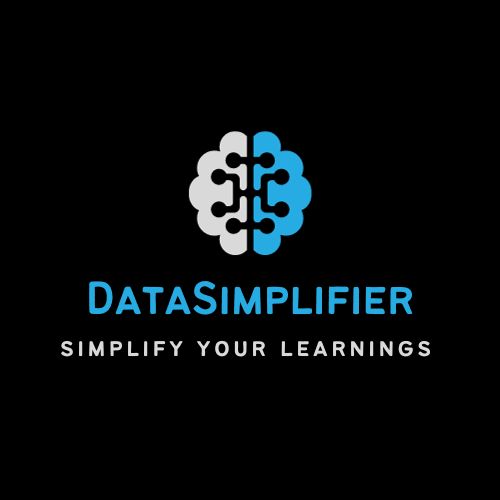Introduction
From Siri to Alexa, from complex predictive algorithms to innovative manufacturing capabilities, artificial intelligence (AI) is embedded in nearly every aspect of our lives. But how exactly do AI agents work, and how do they fit into the broader AI research landscape? If you’ve ever wondered, “How do AI agents work?” or “How can I create an AI agent?”, this guide is here to answer those questions.

In this article, we’ll explore what AI agents are, how they operate, and the role of AI software engineering in creating intelligent systems. Whether you’re a college student looking for a refresher, someone new to the tech field, or a career-changer seeking insights, this guide provides all the knowledge you need to tap into the power of AI. Let’s dive in!
1. What are AI Agents?
AI agents are systems designed to perceive their environment, process data, and perform actions to achieve specific goals. Often built to mimic human behavior, AI agents are invaluable for decision-making, pattern recognition, and learning from data.
Definition and Overview:
An AI agent can range from a simple chatbot that answers basic questions to a complex self-driving car navigating city streets. The primary purpose of an AI agent is automation, allowing for faster and more efficient decision-making through autonomous data processing.
Types of AI Agents:
- Reactive Agents: Basic agents that respond directly to inputs without storing past experiences. Example: A chatbot providing pre-written responses.
- Limited Memory Agents: These agents remember recent actions or experiences, enabling short-term decision-making. Example: Self-driving cars learning traffic patterns.
- Theory of Mind Agents: Advanced agents capable of understanding human emotions, beliefs, and intentions. These are experimental but have potential applications in social robotics and customer service.
- Self-Aware Agents: Hypothetical agents that possess consciousness and self-awareness. While currently the domain of science fiction, they represent the aspirational future of AI.
Real-World Applications of AI Agents:
AI agents are behind movie recommendations on Netflix, Google search suggestions, and self-driving cars. Across industries like healthcare, finance, retail, entertainment, and education, AI agents are transforming the way we interact with technology.
2. How Do AI Agents Work?
An AI agent operates through a continuous cycle of data collection, processing, decision-making, and action. Here’s a breakdown of this process:

Basic Mechanisms:
- Perception: Data collection through various forms like text, images, or sensor data.
- Processing: Interpreting data using algorithms and models, often through machine learning or deep learning.
- Decision-Making: Developing actions based on processed data.
- Action: Performing the selected action, such as answering a question, recommending a product, or controlling a device.
The Decision-Making Process:
- Collecting Data: AI agents gather relevant data, which may include user inputs, sensor readings, or databases.
- Data Processing and Analysis: AI models analyze data to identify patterns or make predictions.
- Feedback Loop: Agents learn over time by collecting feedback on their actions, refining their algorithms to improve accuracy and effectiveness.
Real-World Applications:
- Finance: AI agents predict stock market trends, detect fraud, and manage investments.
- Healthcare: Agents assist in diagnosing diseases, analyzing medical data, and even aiding in surgeries.
- Customer Service: Chatbots and virtual assistants enhance customer support by answering queries and providing tailored assistance.

3. Building an AI Agent
Contrary to popular belief, building an AI agent isn’t rocket science. With modern tools, anyone can get started. Here’s a simple three-step guide:
Pre-Requisites:
- Programming Knowledge: Python is the most widely used language in AI and machine learning.
- Tools and Libraries: TensorFlow, Keras, and PyTorch are essential libraries for building AI models.
- Hardware/Software Requirements: A computer with a decent processor works for most tasks, while complex models can be developed using cloud resources like Google Colab.
Step-by-Step Guide:
- Define the Agent’s Purpose: Determine what the agent should accomplish—whether a recommendation engine, chatbot, or image classifier.
- Choose Tools: Start with Python, TensorFlow, and Google Colab.
- Collect Data: For instance, chat logs for a chatbot or user data for a recommendation engine.
- Develop the Model: Select and train a model on the collected data, adjusting for accuracy.
- Test and Deploy: Test the agent in various scenarios before launching it on a platform or application.
Tips for Beginners:
- Start small with projects like a chatbot or simple image classifier.
- Use online resources (Coursera, edX, YouTube tutorials) to build foundational knowledge.
4. AI Software Engineering and AI Agents
AI is transforming software engineering by automating repetitive tasks, preventing errors, and improving code quality. Here’s how AI supports developers:
Role in Software Engineering:
AI enables rapid development by automating repetitive coding and project management tasks, helping to prioritize and resolve issues early in the development cycle.

AI in Debugging and Testing:
AI assists in debugging by identifying errors, predicting potential issues, and performing automated testing. This reduces the risk of human error and enhances code quality.
Popular AI Tools for Developers:
- GitHub Copilot: Auto-completes code based on provided input.
- OpenAI Codex: Generates complex code structures.
- Jupyter Notebooks with AI: Supports data analysis, code writing, and algorithm testing.
These tools allow developers to focus on creative tasks while letting AI handle more routine coding and debugging.
5. Start Experimenting with AI at Home
AI isn’t limited to large corporations; you can begin experimenting with AI at home. Here are some starter projects:
Beginner AI Projects:
- Chatbot: Design a chatbot using natural language processing libraries.
- Recommendation System: Create a simple recommendation engine for products or movies.
- Image Classifier: Develop a basic CNN to classify images, like identifying cats and dogs.
Resources for Beginners:
- Coursera: AI and machine learning courses from top universities.
- YouTube: Free tutorials from channels like “3Blue1Brown,” “Sentdex,” and “freeCodeCamp.”
- Coding Sites: Platforms like Kaggle and Google Colab provide free computing resources for projects.
Starting small with projects and leveraging online resources can build your skills and confidence in AI.
Conclusion
Understanding AI agents and their applications can offer tremendous career advantages and open new opportunities in today’s fast-paced tech world. From the basics of how AI agents work to steps for building your own, this guide has covered all essential information for embarking on an AI journey.
If you’re ready to dive deeper and stay updated on AI developments and job openings, join our exclusive Telegram channels where we share valuable insights daily. For a more personalized experience, drop your Telegram handle below to join our premium group. Let’s connect with a thriving community and access the latest in AI and data science career opportunities. Start your AI journey with us today!
Share the post with your friends

1 thought on “How AI Agent Work: Your 5 Step Best Guide for Mastering it”